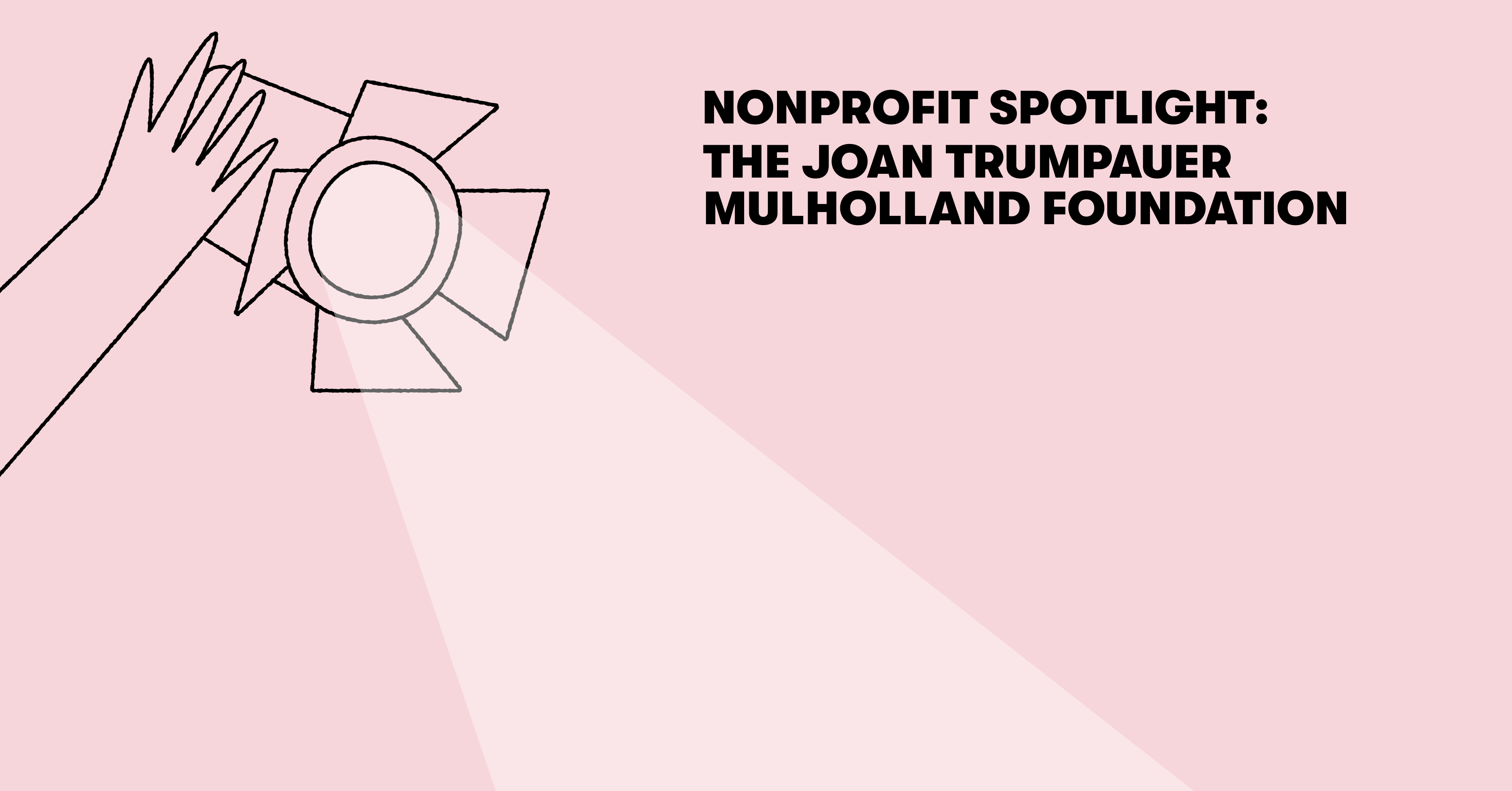Nonprofit Spotlight: Joan Trumpauer Mulholland Foundation
The Deed team sat down with Joan Trumpauer Mulholland Foundation to talk about their important mission, and how companies can help drive more impact.
For our latest Nonprofit Spotlight, Deed sat down with Loki Mulholland, Executive Director of the Joan Trumpauer Mulholland Foundation, to discuss how the organization is carrying forward one woman’s powerful legacy to inspire lasting change.
Rooted in the extraordinary life of civil rights icon Joan Trumpauer Mulholland, the Foundation is on a mission to end racism through education. By sharing Joan’s story—and those of countless others who stood for justice—the organization helps students and communities confront the realities of America’s past and take action for a more equitable future. From award-winning documentaries to classroom programs and digital learning tools, the Foundation turns history into a living lesson in courage and compassion.
In our conversation, Loki Mulholland reflects on his mother’s journey, the transformative power of storytelling, and how the Joan Trumpauer Mulholland Foundation and Deed are working together to keep the spirit of the Civil Rights Movement alive today.
What motivated the creation of your organization?
"It really started after a screening of An Ordinary Hero, the documentary about my mom and the student movement. We were showing it at Ole Miss, and afterward, several college students came up to me and said, “We never learned any of this.”
At first, I assumed maybe that was just specific to Mississippi. But as I continued showing the film in other places, I realized it was a much broader issue—many people simply hadn’t been taught the full story of the Civil Rights Movement. For most, it’s condensed to a few key moments: Rosa Parks sat on a bus, Dr. King had a dream, and that’s where it ends. But there’s so much more in between. It’s a rich and essential part of American history, filled with countless acts of courage and everyday people who made a difference.
That experience made me realize we needed to do something. I grew up surrounded by this history, so I assumed everyone else learned about it too. Of course, not everyone had my mom. So in 2013, we founded the Joan Trumpauer Mulholland Foundation—not only to preserve and share her legacy, but to help teach others about the Civil Rights Movement and inspire them to see how they, too, can make a difference."
How has your organization changed since it was originally founded?
"Our mission has stayed the same—preserving my mother’s legacy and educating people about the Civil Rights Movement—but the ways we carry it out have evolved. One of our biggest initiatives now is the HBCU Micro-Scholarships program. Inspired by my mom’s integration of Tougaloo College in 1961, we award three $250 micro-scholarships each week to HBCU students. Applications are simple—no essays—and winners can use the funds however they need. Our goal is to help students stay in school and graduate, creating long-term impact for both them and their communities.
We’ve also expanded into literacy programs to address book deserts. During COVID, we ran a Civil Rights Veterans Relief Fund to provide essential support to veterans. Storytelling remains central to our work: we’re now on our tenth documentary, and we’re piloting a school program that combines teacher development with student social-emotional learning, using the Civil Rights Movement and my mom’s story as a guide.
In short, while the mission hasn’t changed, the ways we engage, support, and inspire people have grown considerably."
How did you get interested in filmmaking?
"I first got into filmmaking because of Star Wars—this was back in 1976—and from there, I naturally found my way into documentaries. Growing up, I watched a lot of PBS and was surrounded by history, which has always fascinated me. Making films felt like a natural way to explore and share those stories.
My focus really deepened when I made a film about my mom. After that, people started approaching me to tell other important stories or suggesting projects that needed attention. For example, our film Dying to Vote tells the story of Vernon Dahmer, and we’re currently finishing a documentary about inequalities in infrastructure, centered on the landmark case Hawkins v. Town of Shaw. It’s a little-known story about Andrew Hawkins, whose sacrifices—including the murder of his wife and the deaths of family members—paved the way for improvements in running water and other basic services for marginalized communities.
What draws me to filmmaking is the power of storytelling to illuminate history, highlight ongoing injustices, and connect the past to current issues, like the Jackson water crisis in Mississippi."
What have been some of the biggest challenges for your organization?
"One of the biggest challenges has been meeting the demand for programs like our micro-scholarships. This year, we plan to award 100 scholarships, which is exciting, but already 3,000 students have signed up. Communicating with everyone and managing expectations can be difficult.
Funding is another ongoing challenge. Even small contributions make a difference. A single dollar doesn’t cover a $250 scholarship, but collectively, every dollar brings us closer to supporting more students. I often think about something my mom used to say: “I can’t do everything, but I can do something, because doing nothing is not an option.” That mindset guided many people during the Civil Rights Movement, whether it was providing food, transportation, or bail money for activists. Today, it guides us as well. Even small actions, when multiplied by many people, can create a meaningful impact.
Ultimately, the challenge is balancing limited resources with the huge need, but the motivation to help students and communities keeps us moving forward."
Can you share more information about how your mom got involved in the Civil Rights Movement?
"My mom often said that she first understood the realities of segregation when she was just ten years old. She saw a schoolhouse for Black students in Georgia and compared it to the brand-new brick school for white students. She told herself, “This is wrong, and I’m going to do something about it.” Even at that young age, she was motivated by what she was taught in Sunday school—to love thy neighbor as thyself—and by the principle in the Declaration of Independence that all people are created equal. She truly believed in it, and she put that belief into action.
Her time at Duke University was also influential. As a white Southern woman actively involved in the Civil Rights Movement, she faced skepticism—some even thought she was mentally ill—but she persisted. For her, it was the friendships and the shared commitment that mattered most. My mom always said they saw a problem, gathered friends, and worked together to solve it. That collaborative spirit fueled her lifelong dedication to justice."
What is the best way that people can support your organization and your mission?
There are many ways people can support us. Donations are always appreciated, whether that’s contributing directly, buying a book, or picking up a t-shirt. Spreading the word about our work is also incredibly helpful. But beyond that, the most important thing is to learn and be honest about what you can do. We often tell people: you don’t have to try to change the whole world—just focus on changing your world in whatever way that looks like for you.
Deed’s conversation with Loki Mulholland reminded us that many nonprofits are born from a simple but powerful question: How can we make a real difference? The Joan Trumpauer Mulholland Foundation has grown from that vision into an organization dedicated to ending racism through education. By sharing Joan’s story and the history of the Civil Rights Movement, the Foundation inspires students and communities to take action and engage in social justice.
There are many ways to support this mission—whether by donating, sharing resources, or helping bring these stories into classrooms and communities. We invite you to explore the Joan Trumpauer Mulholland Foundation’s profile on Deed and see how you can get involved.

